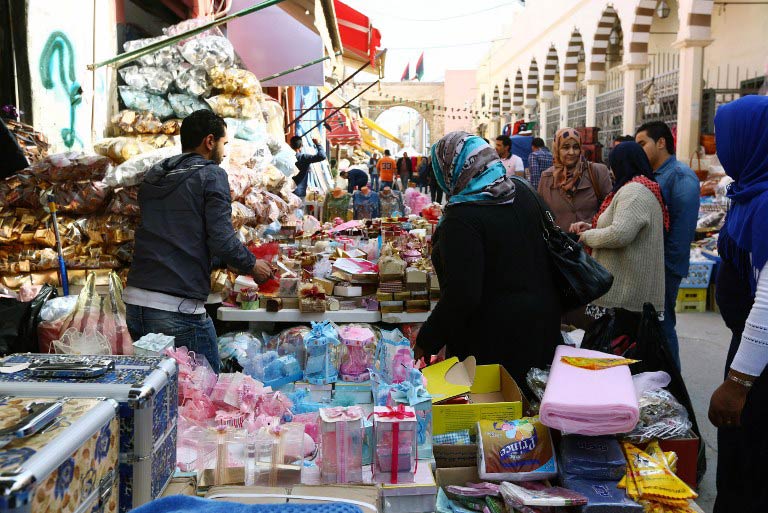
Armed convoys, checkpoints and sporadic exchanges of gunfire are still common in the Libyan capital, but residents are flocking back to the streets and surprisingly hopeful of a brighter future.
Sitting in a newly opened cafe overlooking the blue waters of the Mediterranean, Mohammed, a 19-year-old student, said that while fear remains, Tripoli’s residents are trying to get on with life.
“Tripoli is a city that loves life and wants peace and peace must find her,” he said.
Since the ouster of dictator Muammar Gaddafi almost four years ago, rival militias and administrations have battled for power in the oil-rich North African country.
The city was seized in August by the Islamist-backed General National Congress after weeks of bloody fighting with forces backing the internationally recognised government.
That triggered an exodus of foreign residents and prompted most diplomatic missions to close.
The rise of the Islamic State group, which has claimed several attacks in the country, has also raised fears but the city’s residents are adapting as best they can.
Some even sense a changing tide.
In the coastal neighbourhood of Gargaresh, shops, designer boutiques and restaurants stretch for some three kilometres along the seafront.
The streets are crowded with pedestrians and traffic.
Women in colourful scarves, men and children are busy socialising and shopping.
Almost nothing is missing from stores that continue to import goods through Tripoli’s port.
Petrol is still cheap and the Libyan dinar is stable at 1.36 to the dollar. Power cuts are becoming rare and electronic goods are becoming cheaper as imports from China rise.
“There has been some unrest, people momentarily deserted the area, but now they are coming back,” said Anas, who works in a restaurant in the neighbourhood.
He said the shops and restaurants were abandoned during the deadly summer clashes but life is returning to normal.
“That’s not to say that people are totally reassured. They fear for the future, they are afraid of explosions and fighting that could happen any time,” he said.
Peace ‘desperately needed’
Armed convoys patrol Tripoli’s roads daily, often erecting checkpoints. This is reassuring for residents, but few venture out after dark.
“Some people go out at night, but most stay at home because we can’t identify who is on the checkpoints,” said Anas. “It is difficult to know who we are dealing with these days.”
On the short drive to the city centre from Gargaresh, pictures of killed militia fighters adorn the big metal billboards that once displayed commercial advertising.
The facades of the old town display revolutionary graffiti and slogans of the Nato-backed uprising that drove Gaddafi from power in 2011, such as “Free Libya” and “Tripoli: Citadel of Free Men”.
But new slogans are encroaching.
“Yes for Libya Dawn, No to the Murderer Haftar,” reads one aimed at controversial army chief Khalifa Haftar, who was recently appointed by the internationally recognised government and has vowed to take on Islamists.
Anas el-Gomati, an analyst with the Libya-based Sadeq Institute think tank, said that although Libyans differ on politics, they still want a political solution.
“It would be near impossible to generalise as to what Libyans want. What they certainly don’t want is more war. Any peaceful solution to the current civil war is desperately needed,” he said.
At Mitiga airport to the east of the capital, Raja, an affluent businessman, is returning to live and work in the city.
He fled Tripoli a couple of years ago following an altercation with gunmen in a grocery store.
“They came into the store and kidnapped the owner as they beat me and threatened to kill me. After that I left the country immediately,” he said.
“I left then because of fear, but now I have decided to return because I love my city and I believe that peace will prevail soon. But I will never go to a grocery store ever again.”
